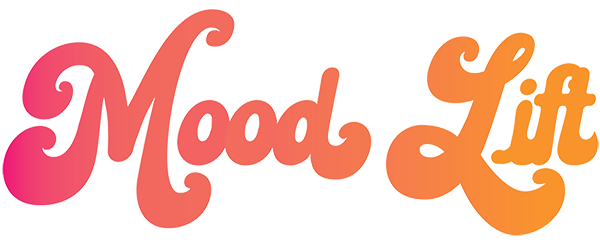Sleep
Let’s Talk About Sleep: the importance of it, the types of restful sleep, and how it can impact our mood
McKenna Hickey ·

Let’s talk about sleep. On average, we spend about one-third of our lives sleeping. Without enough sleep, our bodies are not able to function properly – let alone how groggy, anxious, and unfocused we feel on a lack of rest. Great sleep is an absolutely essential part of our mental and physical well-being.
How much sleep do we need?
Although we’ve always been told 8 is the magic sleep number, research shows that most adults need between seven to nine hours of sleep per night – depending on the individual person, and the quality of their sleep. Poor quality sleep and sleep deprivation can lead to a long list of consequences and negative effects on our health.
Sleep quality is key
The duration of how much sleep we get is important, but it really comes down to our quality of sleep. There are four stages in the sleep cycle:
Stage One The first stage starts when we are first starting to doze off, only lasting a few minutes.
Stage Two You then enter stage two, this is the stage where your heart rate starts to slow down and your body temperature starts to drop.
Stage Three Stage three is our last stage of non-REM sleep, this is the stage where you enter a deep sleep.
Stage Four And lastly, stage four is our REM sleep. On average, it takes about 90 minutes to get to this last stage of sleep. REM sleep stimulates our brain and is the most essential stage of sleep.
To fall asleep quicker, make sure you have a clear mind. Before bed try meditating, reading a book, taking a hot bath, or listening to relaxing music.
How our sleep cycle impacts our brain function
The body’s clock (our circadian rhythm) runs on a 24 hour cycle. When this rhythm gets out of sync, it can lead to health risks. Sleep has a role in the consolidation of memory and the lack of sleep can impact both our short and long term memory. Memory issues, weakened immunity, and trouble with thinking and concentration can all be effects of sleep deprivation.
On the other hand, a solid night of excellent sleep can lead to increased productivity throughout the day.
Sleep and Weight
Shockingly, poor sleeping habits can actually put you at a higher risk for developing type 2 diabetes: Blood sugar levels surge while you're sleeping, so without enough sleep your blood sugar levels remain high.
Weight gain is deeply connected to our hormonal system: Ghrelin is our hunger hormone - it stimulates our appetite. Leptin is our hormone that regulates our appetite. Sleep deprivation has been shown to increase levels of ghrelin and decrease levels of leptin, which can lead to overindulging.
Sleep & Mood
Our mental health and our mood are majorly affected by our sleeping patterns. Depression, anger, anxiety, and increased irritability are all symptoms of sleep deprivation. Some pre-existing mental health disorders can affect our quality of sleep, and poor quality sleep can also exacerbate the symptoms of those disorders in what feels like a never-ending cycle.
Because of this, it’s critical to implement positive sleeping habit solutions - especially if you find yourself having trouble sleeping.
Positive Habits for Excellent Sleep
Sometimes we drift off with no issues, but occasionally lack of sleep becomes a repetitive and vicious cycle – where we are anxious about not getting enough sleep, and it keeps us awake at night! Mood Lift’s top sleep tips will have you drifting off before you even have to count sheep:
A consistent sleep schedule
Try as hard as you can to plan and keep a sleep schedule throughout the week. Hold yourself to it – lock in the time you need to unwind, and then commit to starting your bedtime process at the same time every night for two weeks. Your body should adjust to your new routine and start learning when it’s time for bed. It might not work immediately the first night, but you’re setting yourself up for a more consistent sleep pattern for your circadian rhythm.
Dreamy sleeping environment
Create a space for yourself that promotes sleep. Keep your bedroom comfortable, dark, quiet, and at a cool temperature. If possible, limit screens in your bedroom (and keep it as a screen-free zone). Add plants to your space (link that) to promote a restful sanctuary. Consider investing in sheets that make you feel peaceful and blissful as you unwind.
Add a sleep supplement
CBD can be an amazing – helps you stop being anxious and helps you get better sleep. CBD has been shown to improve both people’s ability to fall asleep and their quality of sleep, especially when taken consistently.
Cut the coffee
Try cutting off coffee after 3 PM (12 PM is even better). Having a blast of caffeine any time after 3 PM is likely to keep you up aimlessly late at night, well after the focus-inducing benefits have worn off.
Take off from TikTok
Screen time before bed can lead you down a TikTok wormhole where you look up and realize an hour has unintentionally gone by. Even worse – when phone time turns into “doom scrolling” on Instagram (and you find yourself looking at your ex-boyfriend’s cousin’s wedding photos).
But screen time before bed has another major issue: the blue light emitted by electronics restrains our body’s production of melatonin, which helps you fall asleep and stay asleep. For a restful night of deep sleep, put away your phone on Do Not Disturb all the way across the room a full hour before your scheduled sleep time for the night.
With a little planning and self care, the full night of sleep you’ve always dreamed of can be yours.
(Image Credit: @areyouami on Instagram)
